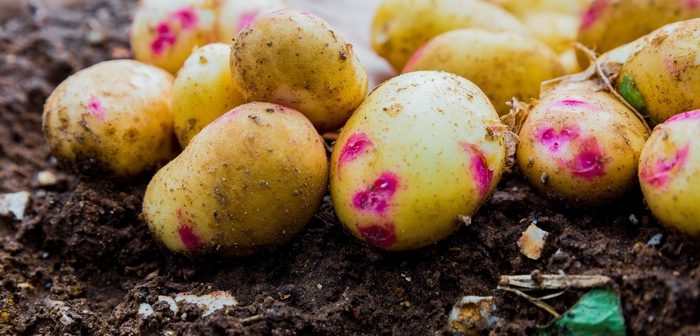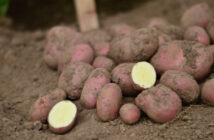Post-Brexit access to emerging EU genetics and varieties by UK seed potato growers could take five years to sort out according to analysis carried out by AHDB.
“There is concern by some that leaving the EU, in whichever scenario, will have a detrimental impact to the access of new genetics and varieties from within the EU,” concludes AHDB Senior Analyst, Sara Maslowski, commenting in a Board Insight report dealing with post-Brexit implications for the UK seed potato sector.
“Varieties on the EU’s Common Catalogue will need duplicate testing to be added to the UK’s National List. This will delay introduction by five years compared with the current process.”
Looking at how the sector will be affected on November 1 this year, based on current exit plans, the report concludes that with most of the UK’s seed exports going to non-EU destinations, short term trade impacts of a no-deal Brexit ‘would seem minimal’.
It’s also stated, however, that a no-deal scenario could have significant impact on individual businesses in the short term.
“As well as tariffs, logistical delays and increased red tape around the border would add to the cost of doing business,” it’s reported. “This is applicable for both importers and exporters.”
Highlighting the fact that most non-EU seed is exported in November/December each year, Ms Maslowski comments that the current exit deadline of October 31, could make life ‘tricky’, whatever arrangements are put in place. That’s with the EU itself taking no UK seed at all on Brexit day one, of course.
In considering the longer term implications of exporting seed to EU buyers, the report argues that the UK will ‘need’ an agreement in place before trade can be restarted, under a no-deal scenario.
“There is the possibility that separate agreements with individual EU countries would need to be negotiated before trade could take place, although this may be done ‘en masse’,” said Ms Maslowski, adding that it is unclear how long this would take and that it seems ‘unlikely that this would be a priority for the EU’.
“The largest export tonnages to Europe are shipped from February to April. If the EU does grant the UK third country equivalence soon after the current 31 October deadline, there would be a short time for an agreement to be put in place. If this happens then the impact could be minimised somewhat.
“But if the EU denies the UK third country equivalence status, or delays the decision, then seed intended for export could end up in the domestic market. The resulting extra supply could put local prices under pressure. Saying that, for the quantities involved, the impact of this is likely to be small.
“If third country equivalence status is granted, seed intended for EU markets may still need a phytosanitary certificate or additional testing to comply with EU regulations. This may make exports to the EU more expensive and less competitive against our European counterparts. However, if this happens it may also drive opportunities for our own seed industry to investigate new markets.
“For imported seed, the latest SASA and Defra information at the time of writing, says that EU certified seed potatoes will continue to be recognised in England, Wales and Northern Ireland for one year following exit day. A phytosanitary certificate will be needed for all imports. While this may seem straight forward, there would still be disruption at the border. After this time, if an agreement with the EU isn’t reached, third country rules would apply and domestic purchasers would incur additional costs. Scotland will continue to operate its voluntary arrangement with industry to only source local seed potatoes.”




